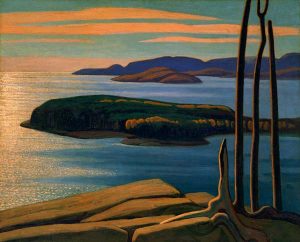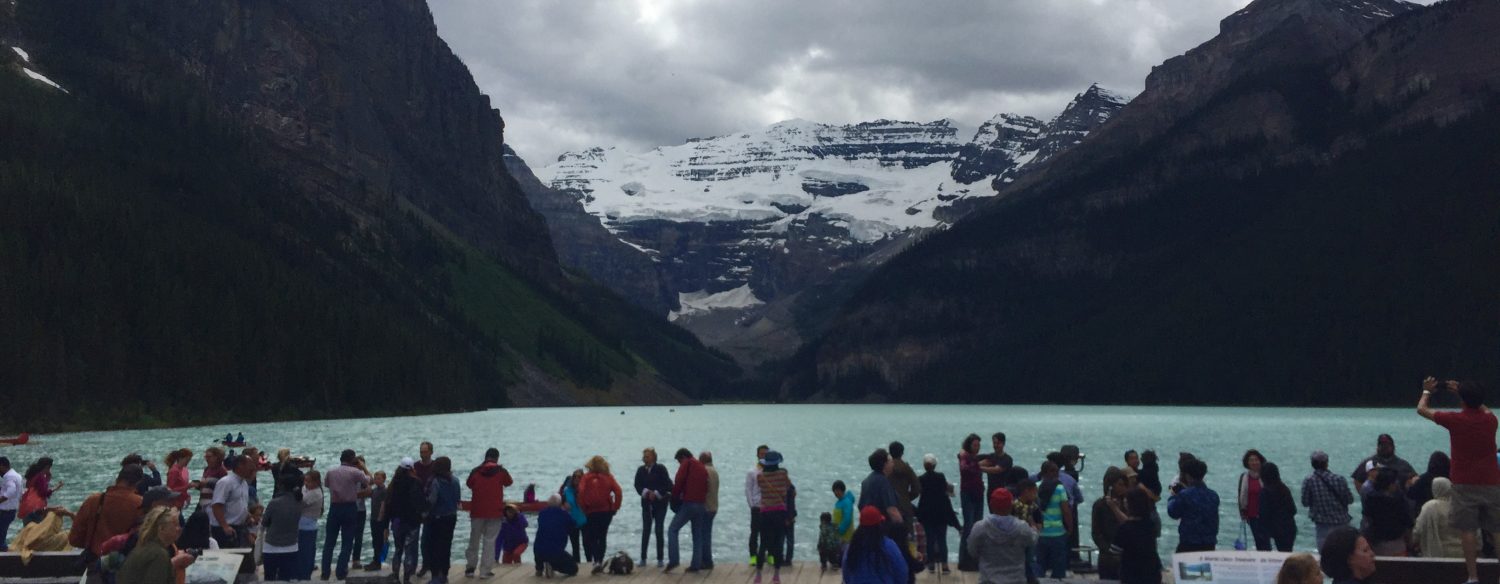Hi there. My name is Mikayla Uber and I’m an English Literature major. Originally from Portland, OR, I am excited to approach this course from an American perspective. The typical American does not know much about their neighbo[u]r to the north, let alone know the first thing about the Canadian literary genre. Shamefully, my current concept of Canadian literature begins and ends with Margaret Atwood.
From the outset, it seems like this course will provide a detailed look at the relationship between stories, culture, and literature. It will examine the historical and critical processes that go into shaping the Canadian literary identity, and pay attention to the ways in which First Nations and nonindigenous voices interact. I think it will show us the danger of only having a single story. This Ted Talk from Nigerian author Chimamanda Ngozi Adichie discusses the power stories have in shaping our perception and understanding of the world. Adichie’s talk warns against letting a single narrative define our perception of a nation, a culture, or an individual. While her talk is focused on Nigeria, it seems like it will be applicable to our course and its themes.
There are two things that I expect to take away from this course:
1. An education in distance education. This is my first online course and I am interested to see how this type of community differs from an in-class environment. I really like the idea of keeping a blog and getting to read everyone else’s reactions alongside my own.
2. Exposure to stories that define the Canadian spirit. From reviewing the syllabus, I expect that there will be discussion about the different voices that make up the unique Canadian narrative. I expect this course to tell a multifaceted story of culture, history, and individuals. I expect my assumptions will be challenged, not only about others, but also about myself.
I’m looking forward to this course and the lively discussions it will bring!

Works Cited
Adichie, Chimamanda. “The Danger of a Single Story.” Ted Global. July 2009. Lecture. https://www.ted.com/talks/chimamanda_adichie_the_danger_of_a_single_story?language=en.
Harris, Lawren. Afternoon Sun, North Shore, Lake Superior. 1924, oil on canvas, National Gallery of Canada, Ottawa.
“Margaret Atwood on Predicting Everything We’re Doing Wrong.” Broadly – Vice. 14 Jan. 2016. https://broadly.vice.com/en_us/video/iconic-author-margaret-atwood-on-abortion-twitter-and-predicting-everything-were-doing-wrong. Accessed 08 Sept. 2016.

Hey Girl! Just out of curiosity what exactly is taught in the American education system about Native American peoples? And how do you think coming from an American perspective will change your interpretation of the class (not that I think your perceptions will be different but I’m just curious as to how they will differ)? Also possibly off base from this course what made you decide to come to University in Canada over any of the Universities down in the United States of America.
Hey! Most of the Native American education I can remember was focused around Sacagawea and her role in the Lewis and Clark expedition. In some cases she was depicted as an integral part of their journey, other times as a mere guide. This might be more of an Oregon / West Coast topic though, rather than part of the general American education system. I know that there were a couple sections in my U.S. History course in high school that mentioned Native American statistics, and how their populations were depleted as settlers migrated further west. In my experience, Americans seem to be less sensitive towards Native populations. There are multiple major league sports teams (Cleveland Indians, Washington Redskins) that have weird / offensive names and mascots. It’s actually unbelievable that these names still exist in 2016!
Anyways, I hope that coming from an American perspective will not make me less sensitive. One of the main differences between the U.S. and Canada is the amount of people. There are so many more people and groups in America, which might make the dominant cultural narrative a bit harder to define.
To answer your last question, I decided to go to university here mostly because it is so much cheaper than schools (even in-state) in the U.S. My mom was born in Alberta, so I am able to pay domestic tuition. I chose UBC in particular because it wasn’t too far from home and it had a nude beach on campus. (LOL jk).
Hi Mikayla,
When reading your blog which mentions your experience with Margaret Atwood, I couldn’t help wondering if there is any aspect of her work that looks typically “Canadian” to you and thus distinguishes itself from the American literature? I suppose your answer, informed by your repertoire of American Literature, might be able to help us define what Canadian Literature as well as the underlying Canadian identities is precisely about.
Cheers, Patrick
Hi Patrick! Thanks for your comment. When I read Margaret Atwood’s The Handmaid’s Tale there was nothing that stood out to me as definitively Canadian. I mostly just saw it as a great dystopian novel. I think the reason I see her as a quintessential Canadian author is because she is referenced so frequently in conversations about Canadian literature.
An interesting thing to note about The Handmaid’s Tale is that it takes place in America. It doesn’t deal with specifically Canadian themes, even though it has a Canadian author. I think a lot of times Canadian artists can downplay their Canadianness in order to be more successful in the States (Justin Bieber, Rachel McAdams, Jim Carrey, etc.) and reach a larger audience. Drake is one of the few mainstream artists who actively promotes Canada. Sorry if this reply got a bit off track! I hope I answered your question!
Hello Mika,
Welcome to our course of studies and thank you for an interesting introduction; I think you will indeed enjoy this course. I look forward to working together and learning from your perspectives and engaging with your insights. Enjoy. Erika